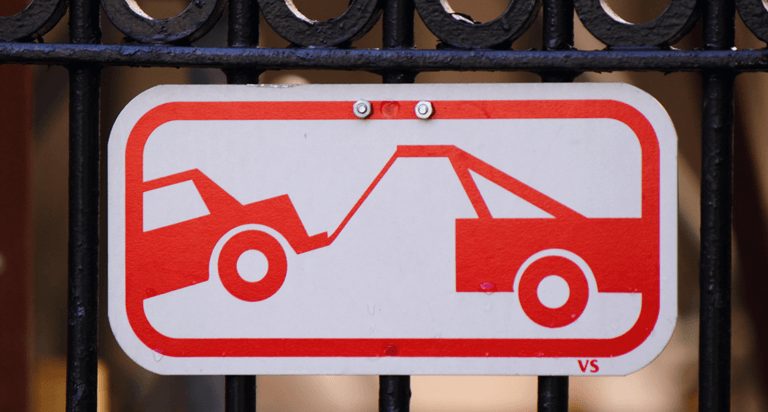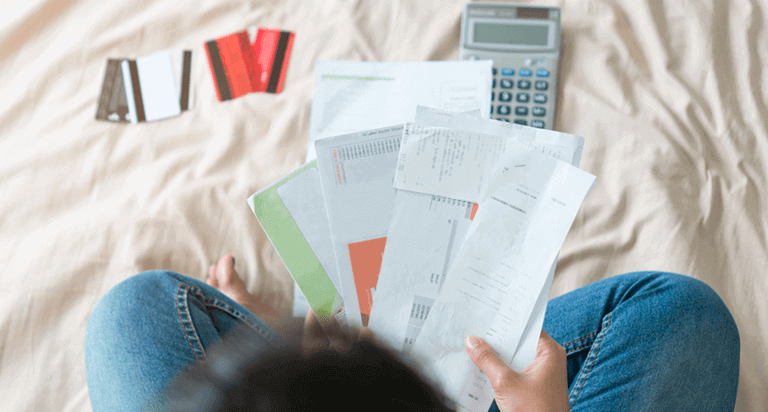What Is Repossession and How Does It Work?


Highlights:
- Repossession occurs when your lender seizes an asset — known as collateral — that's tied to a secured loan.
- Many different assets can be repossessed, including cars and other vehicles, furniture, jewelry and electronics.
- If you're worried about a potential repossession, reach out to your lender about an adjusted payment plan or other debt relief options.
Sometimes falling behind on your loan payments means risking more than just damage to your credit history and credit scores. If your loan is tied to an asset, such as a car, your lender may have the right to repossess your property.
Repossession can happen quickly and with little warning. Learn what repossession is, how to avoid it, and what to do if your property is repossessed.
What is repossession?
Some forms of credit require a physical or financial asset — known as collateral — to secure what you borrow. Repossession occurs when your lender seizes this asset because you defaulted on what you owe.
Cars are the most commonly repossessed assets. However, any property tied to a loan or line of credit can be repossessed. This includes: boats, motorcycles and other vehicles, furniture, jewelry and electronics.
How does repossession work?
Lenders generally have the right to repossess an asset immediately after your credit account goes into default. Default means a borrower misses even one loan payment or makes late payments, but most repossessions happen only when payment is 90 days, or more, past due.
Lenders may use a wide range of tactics to reclaim your collateral. For instance, over the course of a car repossession, a repossession agent may have the car removed from your driveway, use a duplicate key or even hotwire your vehicle. Once the asset has been seized, your lender will generally attempt to sell it to recoup the unpaid portion of your debt.
Depending on your state, you may receive notice of the sale and have the opportunity to bid on your repossessed property. However, because auctions typically require payment in cash, it may be difficult to buy back a valuable item if you're already experiencing financial hardship.
If the sale doesn't generate enough cash to cover your unpaid debt, you may be on the hook for any remaining balance on the loan. You're also responsible for expenses related to recovering the collateral, including the cost to hire a repossession agent, as well as towing and vehicle storage fees.
Types of repossession
Repossessions may be voluntary or involuntary. Involuntary repossessions occur when the lender seizes your collateral by force, typically through a repossession agent. Voluntary repossession is when you arrange to surrender your secured collateral to your lender.
The difference between the two is small. Voluntary repossession typically allows you to avoid the stress of waiting for a third party to seize your property. It also may help you avoid some of the fees associated with an involuntary repossession. Although voluntary repossessions will still negatively impact your credit scores, certain lenders may look more favorably on them because you've shown a willingness to work with your past lenders to resolve a default.
How does repossession affect your credit?
If a lender repossesses your collateral, your credit scores are likely to drop. Repossessions are typically reported to the three nationwide consumer reporting agencies (Equifax®, Transunion® and Experian®). Once they're recorded on your credit reports, they can impact your credit scores for up to seven years. Credit behaviors that typically lead to a repossession, such as missed payments and defaulted loans, may also result in negative marks on your credit reports.
How to avoid repossession
Repossession is not always inevitable, even if you're having trouble making debt payments. Reach out to your lender well before your loan defaults, as many lenders are willing to negotiate repayment plans.
Work with your lender to revise the terms of your loan, but remember to secure a copy of your new terms in writing.
What to do if you can't avoid repossession
It's not always possible to evade repossession, especially once your debt goes into default. However, there are actions you can take to minimize the consequences:
- Never conceal your property from a repossession agent. Hiding an asset from a repossession agent is ill-advised. The longer it takes to recover the asset, the more you may owe your lender in repossession fees. Plus, if a lender can't locate your collateral — for instance, if you're avoiding a car repossession by keeping the vehicle in a locked garage — they may compel you to turn it over with a court order.
- Consider consulting with a professional. Repossession laws vary by state, so it's essential to know your rights. Consider reaching out to an attorney or financial professional who can help you understand the relevant laws and repossession procedures where you live.
- Work on improving your credit scores after repossession. Although the negative information from a repossession can remain on your credit reports for up to seven years, you can take steps to help your credit scores recover over time. Prioritize making debt payments on time, keep any outstanding credit card balances under control and avoid taking on additional debt.
It's a good idea to regularly review your credit reports and credit scores for changes. You can enroll in Equifax Core Credit™ for a free monthly Equifax credit report and a free monthly VantageScore® 3.0 credit score, based on Equifax data. A VantageScore is one of many types of credit scores.
Get your free credit score today!
We get it, credit scores are important. A monthly free credit score & Equifax credit report are available with Equifax Core CreditTM. No credit card required.



